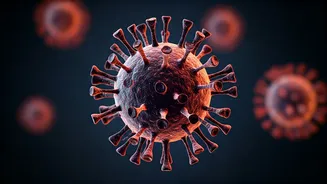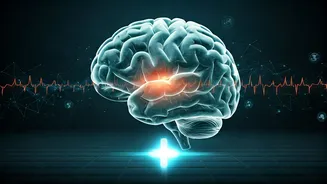Carbs Are Evil
A pervasive myth casts carbohydrates as the enemy. However, complex carbohydrates, like those found in whole grains, vegetables, and fruits, provide essential
nutrients, including fiber. Fiber aids in digestion and helps maintain steady blood sugar levels. Eliminating carbs entirely can lead to nutrient deficiencies and may hinder overall health. Experts advocate for a balanced approach, focusing on the source and type of carbohydrates consumed. Choosing complex carbs over refined ones is a crucial aspect of a healthy diet.
Fat Makes You Fat
For years, fat has been demonized as a primary cause of weight gain. This belief is an oversimplification. While it's true that fats are calorie-dense, they are also vital for bodily functions, including hormone production and nutrient absorption. Different types of fats exist. Unsaturated fats, found in foods like avocados and olive oil, are considered heart-healthy. Consuming excessive calories, from any source, can lead to weight gain. The focus should be on choosing healthy fats and moderating overall calorie intake.
All Calories Equal
The idea that all calories are created equal is another misconception. The body processes calories from different sources differently. For example, a calorie from a sugary beverage offers little nutritional value, and its rapid absorption can lead to blood sugar spikes and crashes. Conversely, a calorie from protein provides satiety and supports muscle building. Understanding the quality of calories consumed is crucial, as it significantly impacts overall health and weight management. Prioritizing nutrient-rich foods over empty calories is essential.
Detox Diets Work
The popularity of detox diets, often promising rapid cleansing, has become widespread, however, experts generally dismiss them. The human body has natural detoxification processes through the liver and kidneys, which effectively remove toxins. These specialized diets are frequently restrictive and can lead to nutritional deficiencies. There is minimal scientific evidence to support their effectiveness. Instead, a balanced diet rich in whole foods, adequate hydration, and regular exercise naturally supports the body's detoxification functions.
Breakfast Is Essential
While breakfast has been marketed as the most important meal, it is not universally essential. It's a matter of personal preference and how an individual's body responds. Some people thrive on a morning meal, finding it energizing and helping to control hunger throughout the day. For others, skipping breakfast might not have any negative consequences and may even aid in weight management. The key is to listen to your body, eat when hungry, and choose nutrient-rich foods when you do eat.
Supplements Can Replace Food
Supplements can seem appealing, but they cannot replace the nutrients found in whole foods. Supplements may fill nutritional gaps in the diet, but they are not a substitute for a balanced eating pattern. Whole foods offer a complex blend of vitamins, minerals, fiber, and other beneficial compounds that work synergistically. Over-reliance on supplements without a foundation of healthy eating can be ineffective and, in some cases, even harmful. Prioritizing a diet rich in fruits, vegetables, lean proteins, and whole grains is the best approach.
Organic Is Always Better
The perception that organic foods are always superior is another myth. Organic farming practices reduce exposure to pesticides and synthetic fertilizers, and it can be beneficial for the environment. However, organic foods aren’t necessarily more nutritious than conventionally grown produce. Factors like soil quality, growing conditions, and the variety of the food influence the nutrient content. It is important to compare the nutrition labels of any kind of food. Organic produce may be more costly, and there may not always be a significant nutritional advantage.
Low-Fat Is Always Better
The low-fat trend influenced the marketplace for many years, however, it can be misleading. Foods labeled 'low-fat' are sometimes higher in sugar or processed ingredients to compensate for the flavor loss. This may lead to higher calorie intake. A moderate intake of healthy fats, from sources like avocados, nuts, and olive oil, is important for overall health and satiety. Focusing on the overall quality of food and ingredients is more important than simply avoiding fat.
Exercise Alone Causes Weight Loss
Exercise is essential for overall health, but it is not the sole determinant of weight loss. While physical activity burns calories, diet plays a major role in weight management. Diet and exercise must work in tandem. People must create a calorie deficit, either by eating fewer calories or burning more. It is essential to combine regular exercise with a balanced and nutritious diet to achieve and sustain weight loss goals. Relying solely on exercise without attention to diet is often ineffective.
Superfoods are Magic
The 'superfood' label, applied to certain foods like berries and kale, can be enticing. These foods are rich in nutrients and have health benefits, but there is no single food that offers a magical solution. A well-balanced diet that includes a variety of whole foods provides a wide range of nutrients, working in synergy to support health. Overemphasizing any single food can be misguided. Focusing on a diverse and balanced diet is the key to optimal health.














